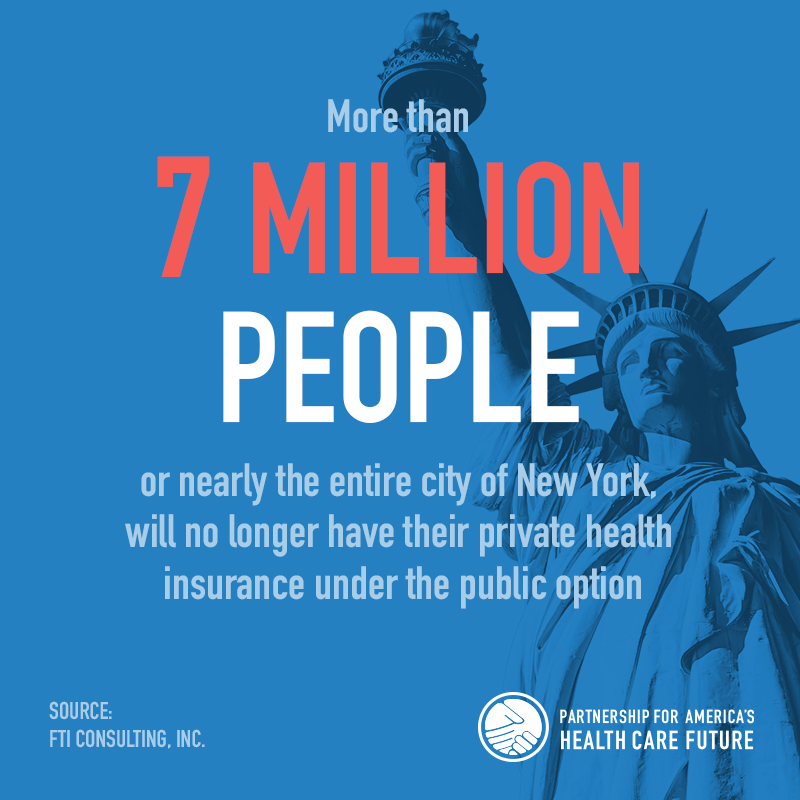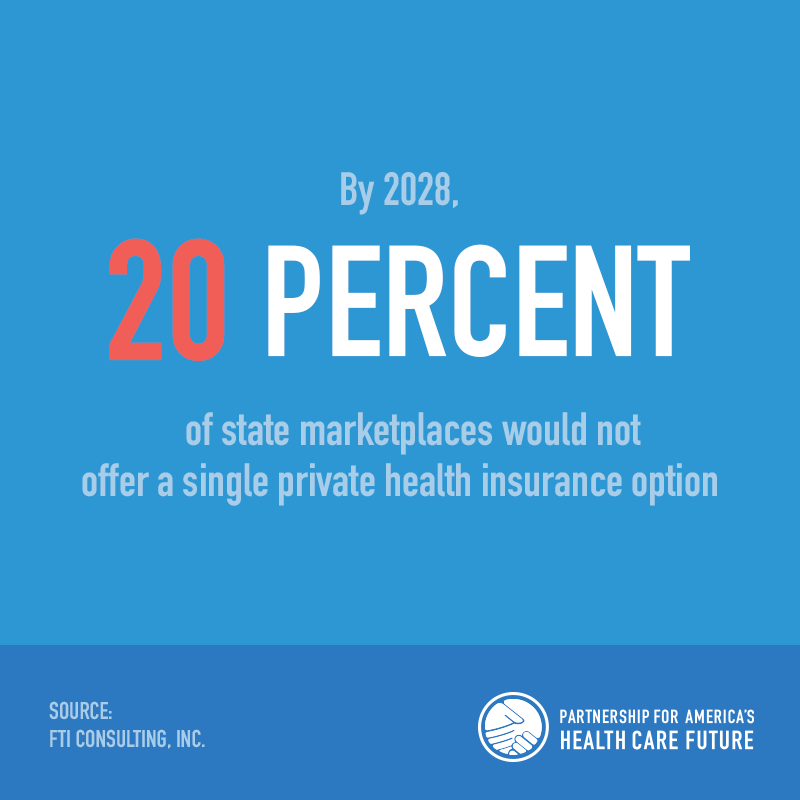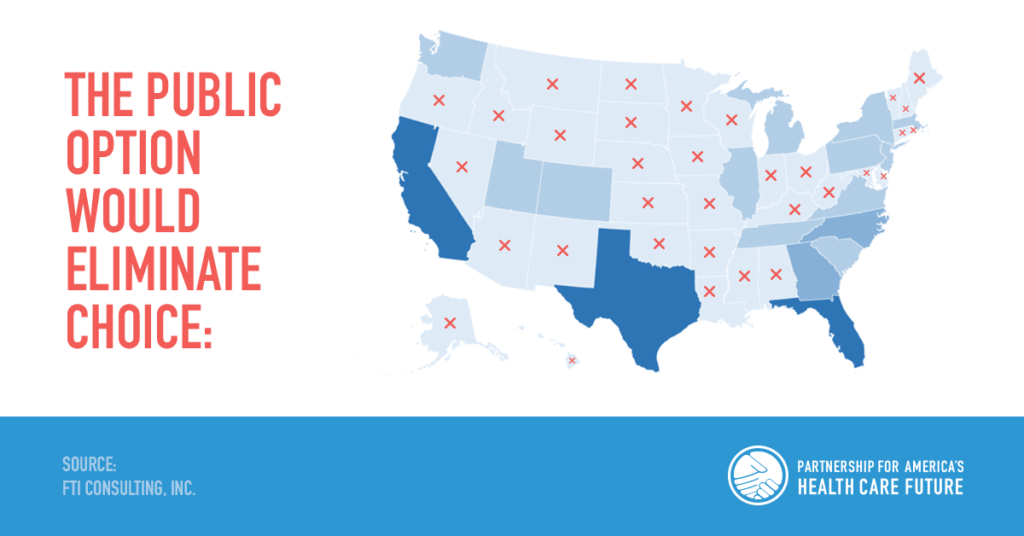STUDY: Assessing The Impact Of A Public Option On Market Stability And Consumer Choice
A new study released by FTI Consulting and the Partnership for America’s Health Care Future reveals that a new government-controlled health insurance system known as the public option “would eventually cause the elimination of all private plans in the individual market.”
The study, “Assessing the Impact of a Public Option on Market Stability and Consumer Choice,” finds the public option would ultimately lead to a one-size-fits-all government health insurance system and eliminate all private coverage in the individual market.
The Facts:


“[F]ollowing introduction of the public option, 20 percent of state marketplaces would no longer offer a single private insurance option by 2028. By 2050, that figure would be expected to reach nearly 70 percent (34 states), representing nearly a quarter of marketplace enrollees,” the study found.
In short, the FTI study found that rather than increasing choice and control for American families, the public option would “crowd out” private coverage and eventually lead to a one-size-fits-all government health insurance system.
Just like Medicare for All, the public option would lead to higher costs, less access and lower quality of care, while ultimately eliminating patient choice and control.
- Premiums will rise for Americans with employer-provided coverage as the public option cuts payments to doctors and hospitals, and providers shift those costs to those with private health insurance.
- In addition, the public option would create a “two-tier” health insurance system where Americans who rely on coverage through their employer would access a different set of hospitals or services compared to Americans who are enrolled in the public option.
How Many Choices Would Be Left In Your State?

The Truth:
The implementation of the public option would hurt patient choice and reduce access to care for millions of Americans, particularly in rural areas.
Some candidates and lawmakers have attempted to frame the public option and similar new government-controlled health insurance systems as “moderate” alternatives to Medicare for All, but these one-size-fits-all systems would lead to the same results: paying more to wait longer for worse care.
While Medicare for All would eliminate patients’ choice overnight, the public option would result in the same harmful consequences over time.
Ultimately, whether you call it Medicare for All or the public option, patients would pay more and wait longer for worse care.
When the free market and public programs work together, we can increase competition and give Americans greater choice and control over their coverage and care. That’s why, instead of forcing all Americans into a one-size-fits-all government health insurance system – whether overnight or over time – lawmakers should come together to build on what is working and fix what’s broken.